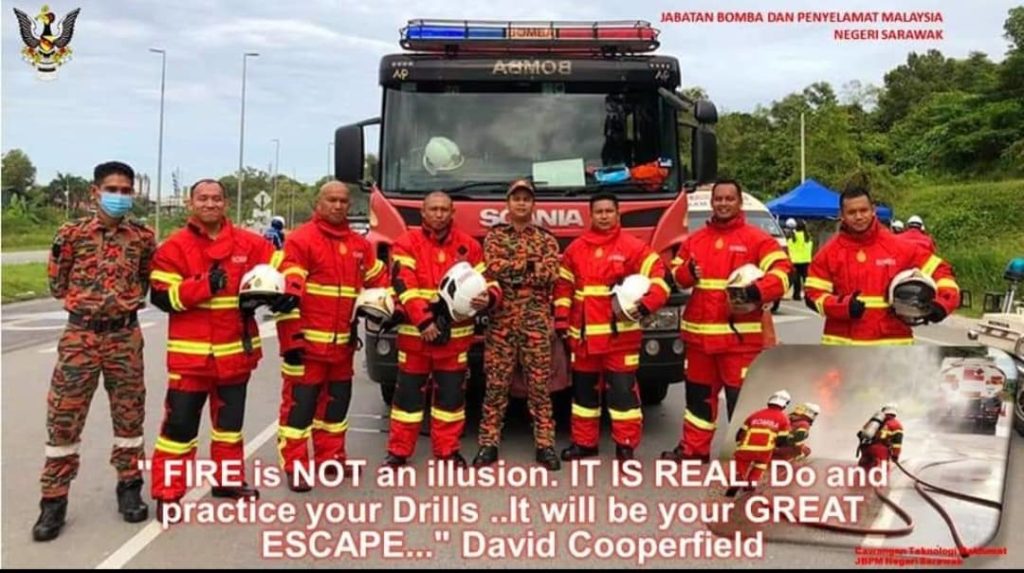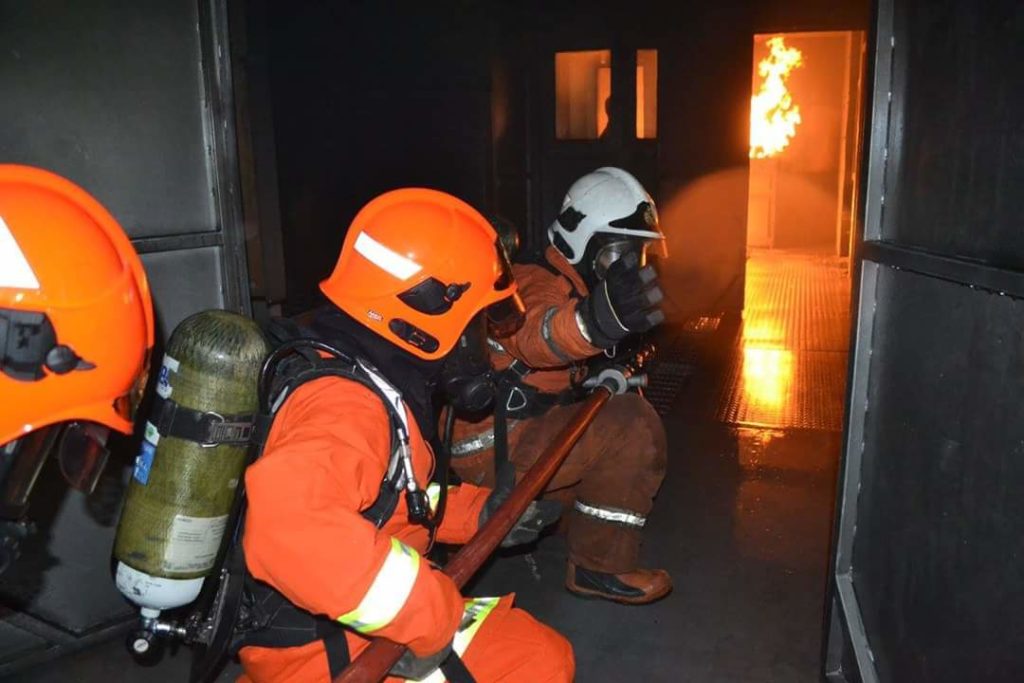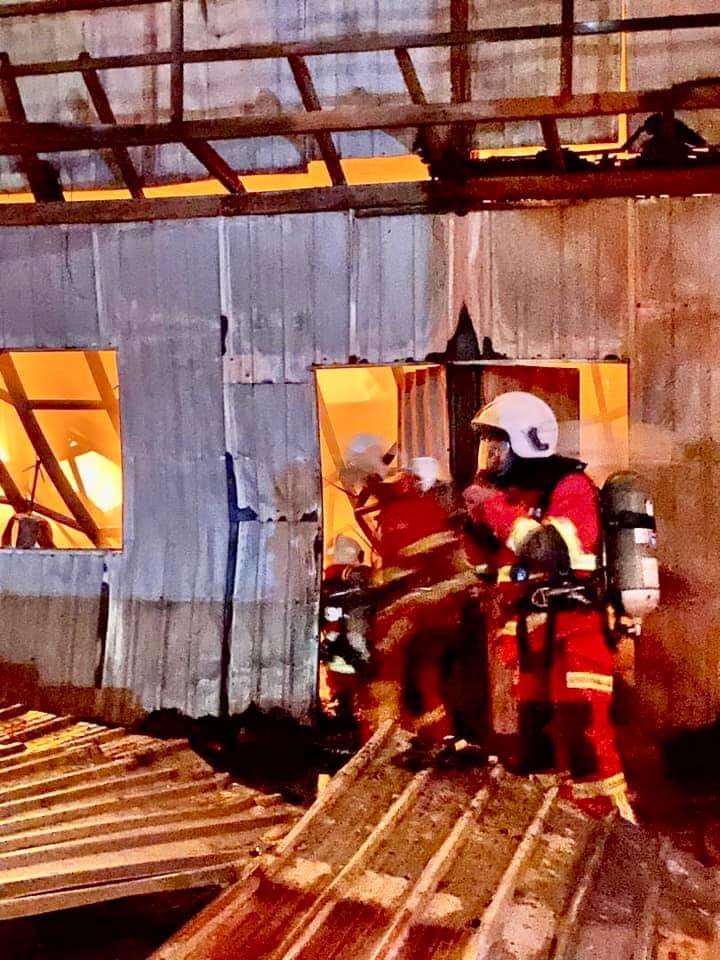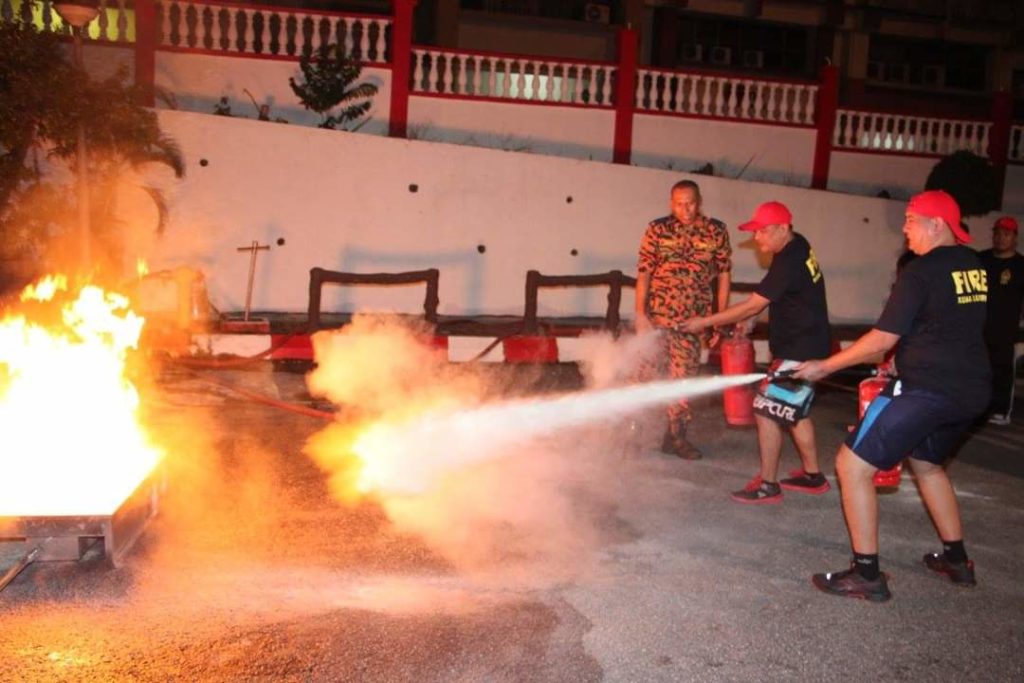
by Datu Khiruddin Drahman
In my previous articles, I have delved into the conceptual perspectives of a total fire safety approach and its critical components.
For today’s column, let us narrow our focus to a topic that concerns each and every one of us: facing a fire or critical incident and how we can tackle it to minimise its impact.
When you are prepared and know what to do, the choice is yours to make — it is not solely the responsibility of the government or the fire department.
Often, people tend to question the government’s role in terms of their safety.
While relevant laws are in place to protect and guide us, ignorance and the belief that “it won’t happen to me” can lead people to think they are always safe and in good hands.
Consider this, on an average day, most people spend about two-thirds of their time at home.
Hours are spent engaging in activities that, if not managed properly, could contribute to fire incidents.
The question we must ask ourselves is, how confident are we that our homes are safe and fireproof?

One of the most important things to do is by decluttering your home and discarding highly combustible items such as paper, magazines, and old clothes.
In the event of a kitchen fire, never attempt to extinguish it with water as it can make the fire grow. Instead, have a fire blanket ready or cover the fire with a damp cloth to suffocate the flames.
Moreover, it is crucial for every household to always remember to switch off the gas when it is not in use.
Households must also only use approved electrical appliances and keep them at a distance from heat-emitting equipment. When they are not in use, always switch off power sockets.
Sources of fire must also be kept away from children. Ensure that these sources are kept out of the reach of children, and never leave lit candles or joss sticks unattended.
This is unfortunately a bad habit of many, but they must avoid leaving mobile phones, power banks, laptops, and other gadgets charging overnight. Charge them at designated locations with fireproof materials and never on combustible surfaces.

I personally advocate for every home to have at least one working portable fire extinguisher. Keep it in an easily noticeable area. Look for an ABC dry powder or multipurpose extinguisher, which can be used on carbon-based materials, oil, and electrical equipment.
Learn how to handle and use a fire extinguisher correctly. The right acronym to remember is P.A.S.S:
Pull the pin, Aim at the base of the fire, Squeeze the lever, and Sweep from side to side to ensure the powder suffocates the fire.
This equipment will come in handy in the event of an emergency although the people are still not aware of its significance.
At the same time, it is crucial to understand that fire can spread in a matter of minutes, and smoke can be deadly within seconds. Take fire safety at home very seriously.
Install portable smoke detectors in the right locations to detect fires at an early stage and provide timely warnings.
Another critical factor is that, in the event of a fire, every second counts. Ensure that everyone in your household is well-prepared to act quickly and knows exactly what to do.

Every home should have a fire extinguisher, smoke detector, fire blanket, and an emergency first aid box, along with an emergency key box.
In a situation where a house fire is in progress and you can no longer tackle it, do not panic and remember the following steps.
If a room is filled with smoke, crawl out with your nose no more than 18 inches above the floor to exit and shout to alert others.
Never go back inside for any reason, especially not for documents or valuables. Close the door behind you to limit the entry of outside oxygen.
Perform a headcount of your family members once outside the house.
Always remember that you are responsible for your safety, and it revolves around your actions, behaviour, and the conditions you maintain. Act and make changes to ensure your safety. Be safe, stay safe, and greatly reduce the chances of facing a fire danger.
In conclusion, fire is a very real threat. It is dark, produces poisonous gasses, and has claimed many
lives without discrimination. It doesn’t choose its victims; it takes everything in its path as it grows.
We can only become champions when we prevent it. Always keep in mind and put into action the “P” approach: Precaution, Prevention, and Protection.
Avoid the “L” syndromes: Lupa (forgetfulness),
Lalai (carelessness), and Leka (negligence).
Stay calm and let the brave firefighters and rescue teams do their job. Your safety begins with the choices you make and the precautions you take at home. Get out alive — it is your choice.
Datu Khiruddin Drahman is the Sarawak Fire and Rescue Chief
WE